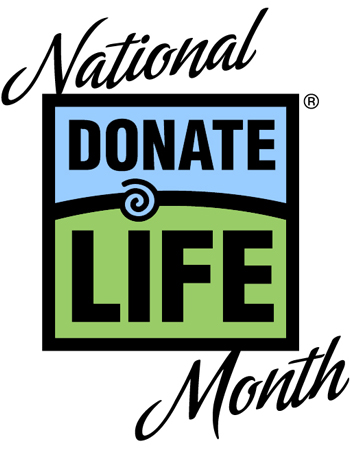




Today's Medicine
How Does Organ Donation Work?


The decision to become an organ and tissue donor, for many, is very personal. Here at Methodist, we are proud to partner with our local organ and tissue recovery agencies to help families give and receive the gift of life.
At Methodist Hospital, we assisted Nebraska Organ Recovery in two organ recoveries and four tissue donations in the last year. At Methodist Jennie Edmundson Hospital in Council Bluffs, we assisted the Iowa Donor Network with six tissue donations in 2018. These tremendous gifts of tissue donation average between 76 and 300 lives saved or improved with each donation.

The need is great
Right now, thousands of people across our nation are waiting for life-saving organ transplants. In Nebraska alone, there are nearly 450 people who need a transplant. In Iowa, right now there are nearly 675 awaiting a transplant. An average of 20 people in the U.S. will die each day because they will not receive the life-saving procedure they need in time.
Saving and healing
The process of saving and healing lives through organ and tissue donation is always a team effort. It begins with a partnership between Methodist and organ recovery agencies. Our goal is always to provide the utmost in care for the donor and his or her family while protecting the safety of the recipients and maximizing the gift of life.
At Methodist, our focus is on patient care. When providers at Methodist make the determination that death is imminent or has occurred, the role of talking about organ donation and the recovery process comes from organ recovery services such as Nebraska Organ Recovery and the Iowa Donor Network.
So what is the process for organ and tissue recovery?
- Identifying potential donors
When an individual has died or their family has decided to end life-sustaining care, the hospital contacts the organ procurement organization (OPO). In order to qualify for organ donation, the potential donor must be in a hospital and supported by mechanical ventilation. Tissue donation may still be an option for those who do not meet the criteria for organ donation. - Donation authorization
If the OPO determines the individual is a good candidate for donation, they check the Donor Registry to see if the patient is registered. If not, family support coordinators with the OPO will discuss the option for donation with the individual’s legal decision maker to determine if they would like to consider organ or tissue donation. - Medical evaluation
Each potential donor is screened to determine what organs and tissues can safely and effectively be donated. They go over the donor’s current health and past medical history, and talk with family members to identify any conditions or lifestyle choices that could adversely affect future recipients. - Finding recipients for organ donation
Once the determination has been made that organs can be donated, recipients are identified through the United Network for Organ Sharing (UNOS). UNOS uses a sophisticated system to determine the best donor match. Matches are based on factors like blood type, size, medical urgency and distance from the donor. - Recovery surgery
The donation surgery takes place in an operating room, with great care given to respect the donor’s body, and maintain the viability and safety of the organs and tissues being recovered. A moment of silence is observed prior to the surgery to honor the donor and the generosity of this gift of life. At Methodist Hospital, we also fly the Donate Life flag throughout the donation process to honor the tremendous gift being given. That flag is then presented to the donor’s family as a remembrance. - Transplantation
After the donation surgery, organs are transported to the recipient’s transplant center and the transplant takes place immediately. Donated tissues are sent to tissue processors for preparation, storage and to find recipients. Donated tissues may be stored for up to five years before being transplanted. - Caring for the donor’s family
During the organ donation process, family support coordinators with the OPO stay with the donor’s family to answer questions, assist with funeral planning, create keepsakes of the donor and provide support however it may be needed. Interested families here in Nebraska may participate in the Live On Nebraska program, which provides grief support and honors the donor in the 13 months following donation.

Becoming a donor
If you are interested in becoming an organ or tissue donor, talk with your family about your decision. Knowing your wishes is the first step in making sure they are followed.
Secondly, register to become an organ or tissue donor. It’s as easy as checking a box when you receive your driver’s license. You can also register online at in Nebraska at liveonnebraska.org, or in Iowa, visit the Iowa Organ Donor Network at www.iowadonornetwork.org.

